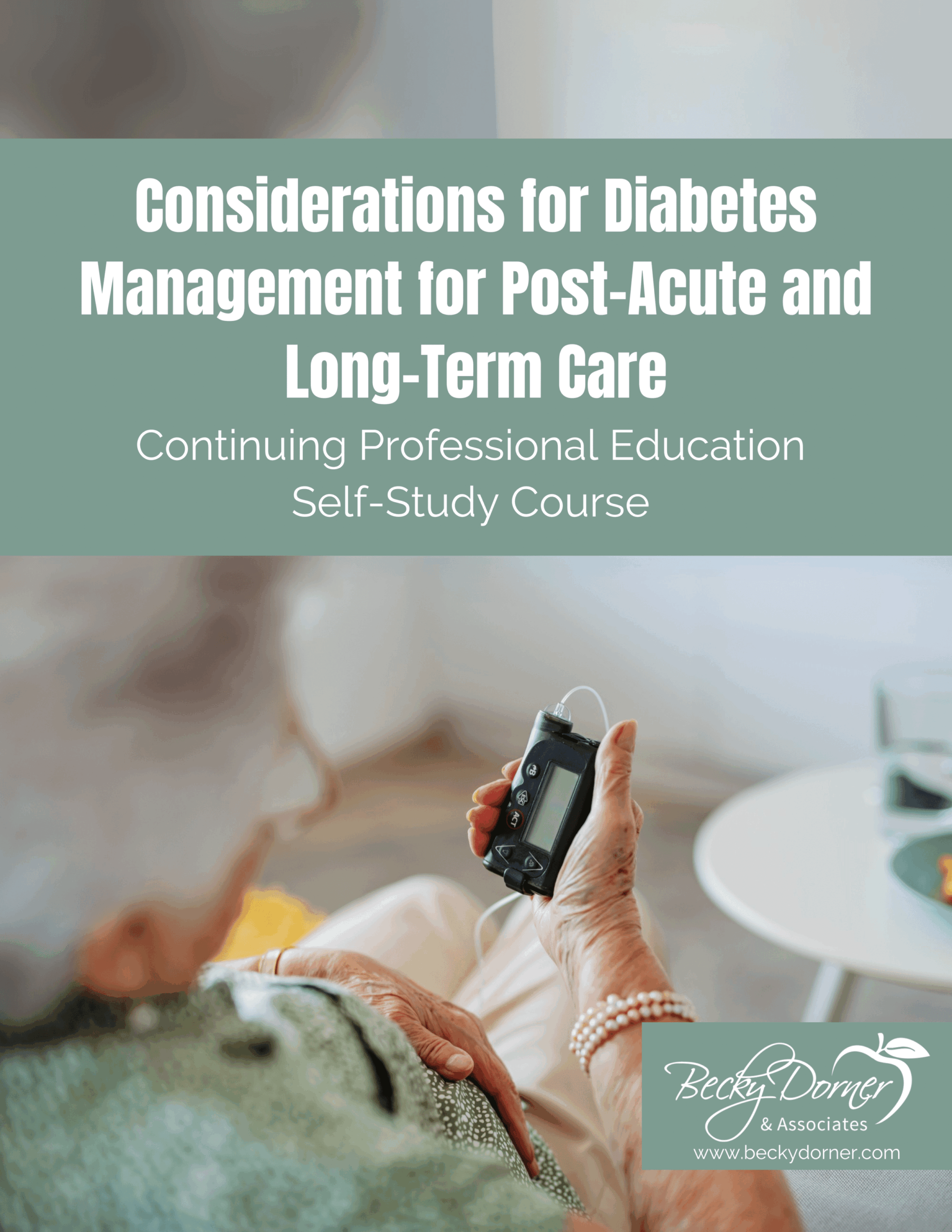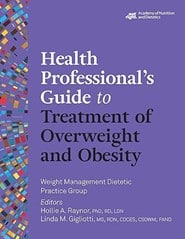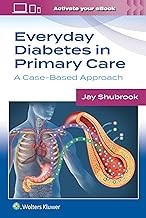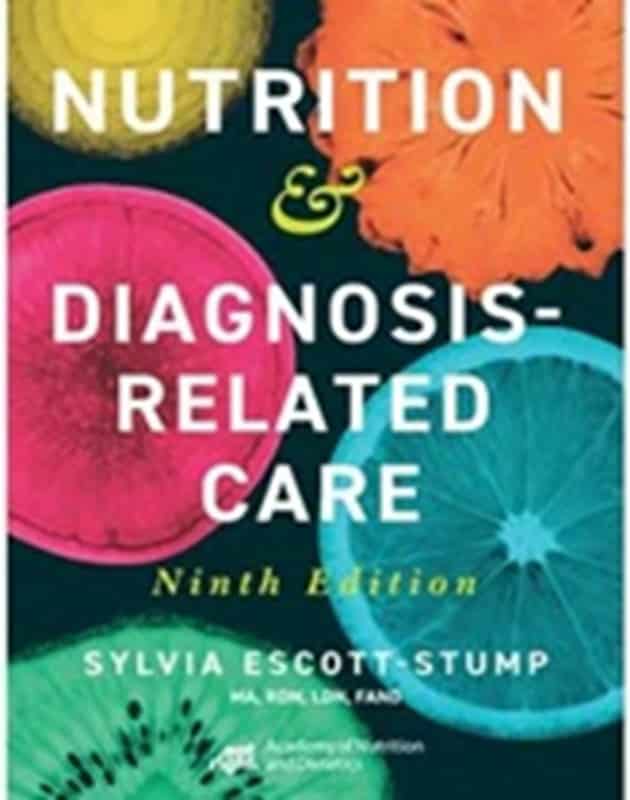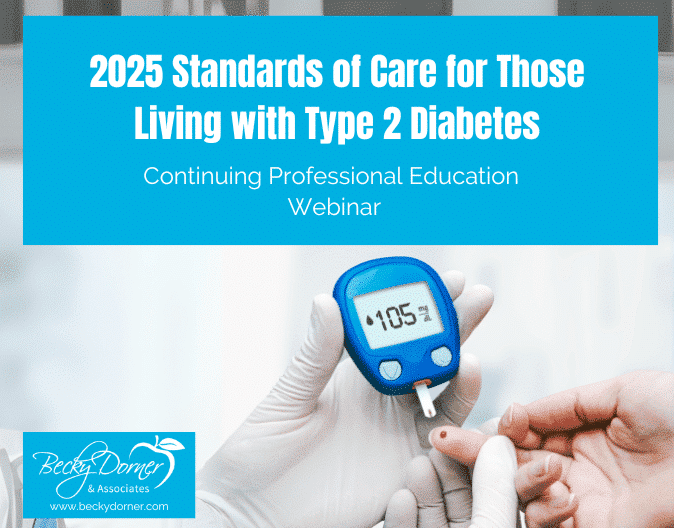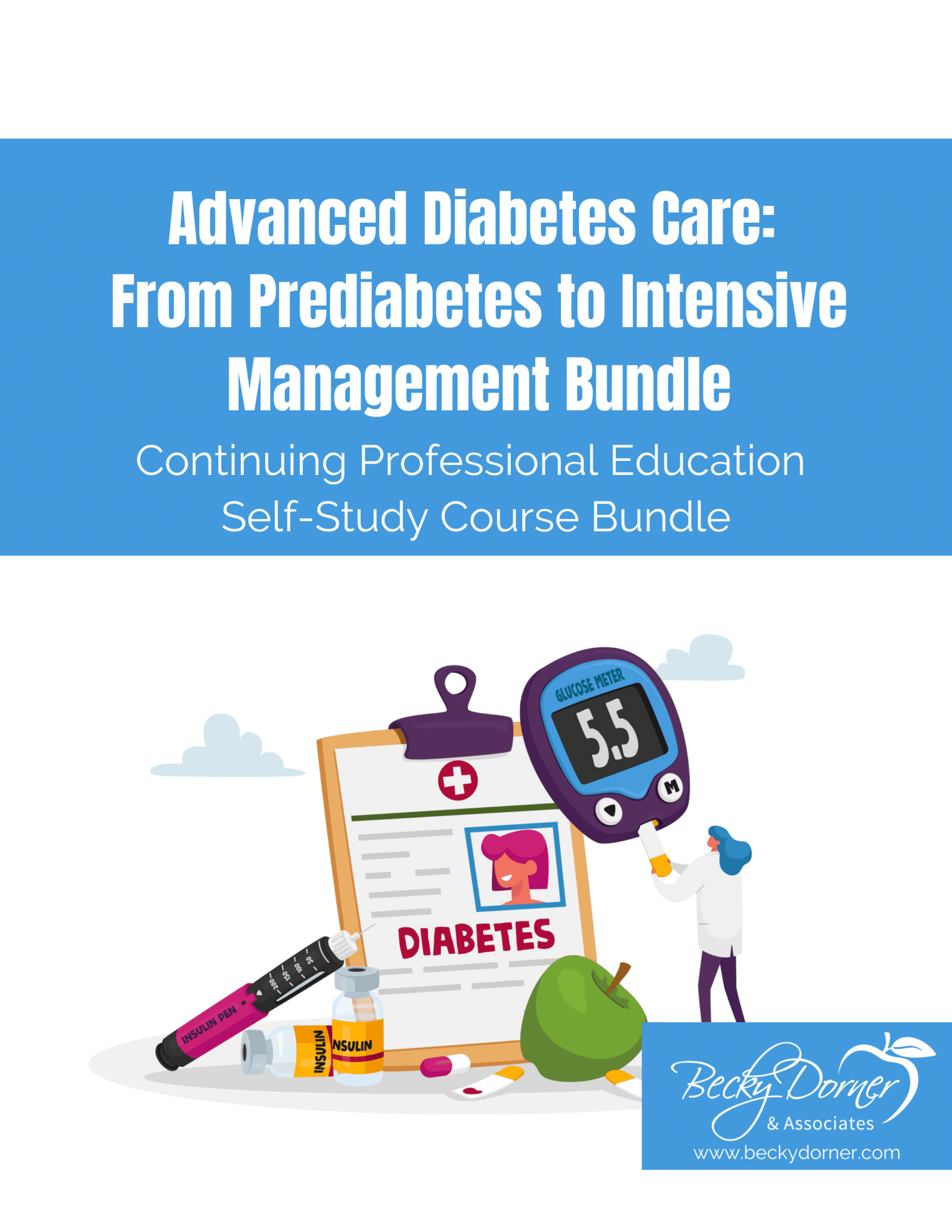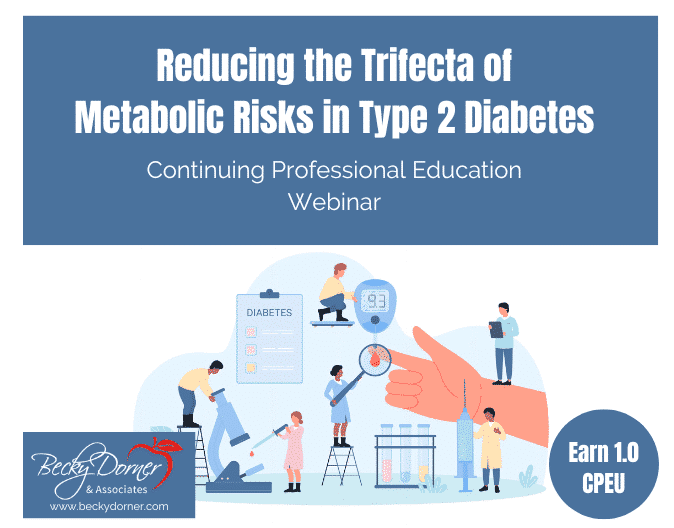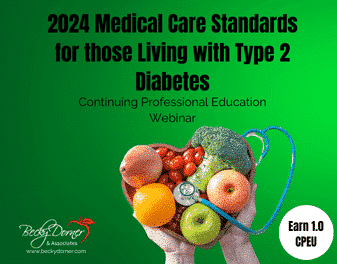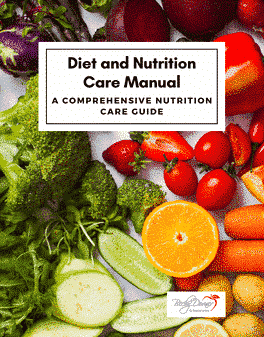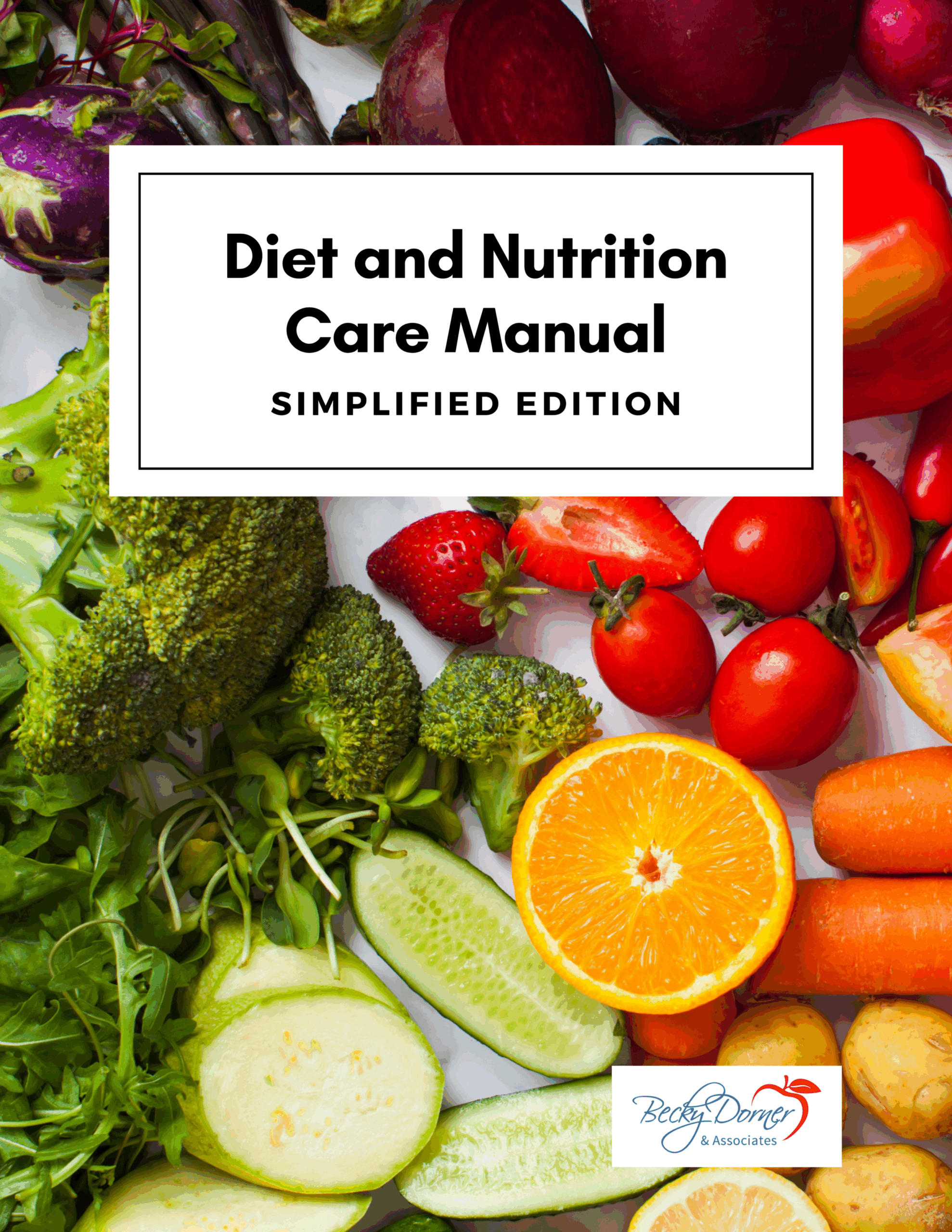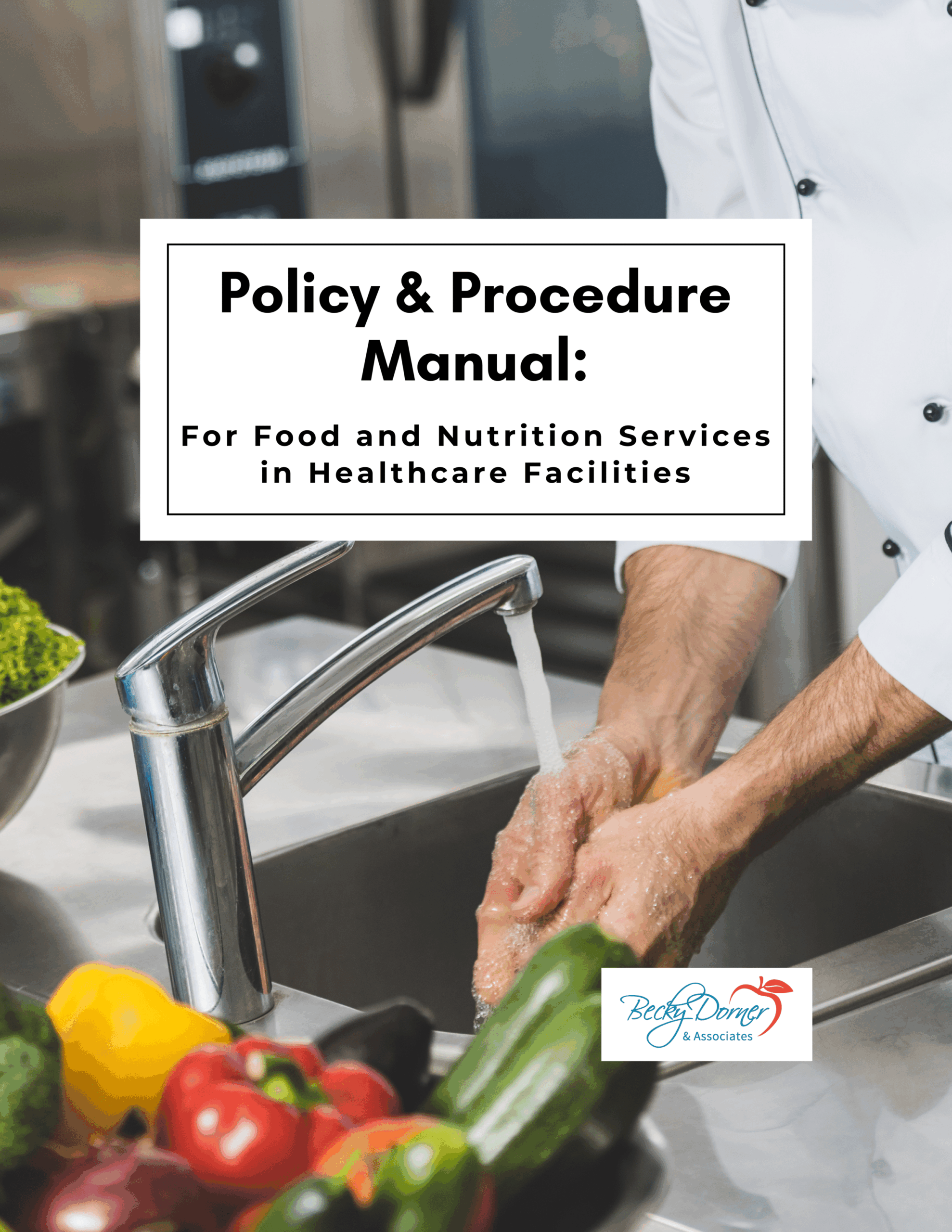The following information and resources are intended for nutrition professionals who educate and treat individuals with prediabetes and diabetes. Becky Dorner & Associates exists to inspire excellence in nutrition care through in-depth continuing education programs, current industry information and helpful resources.
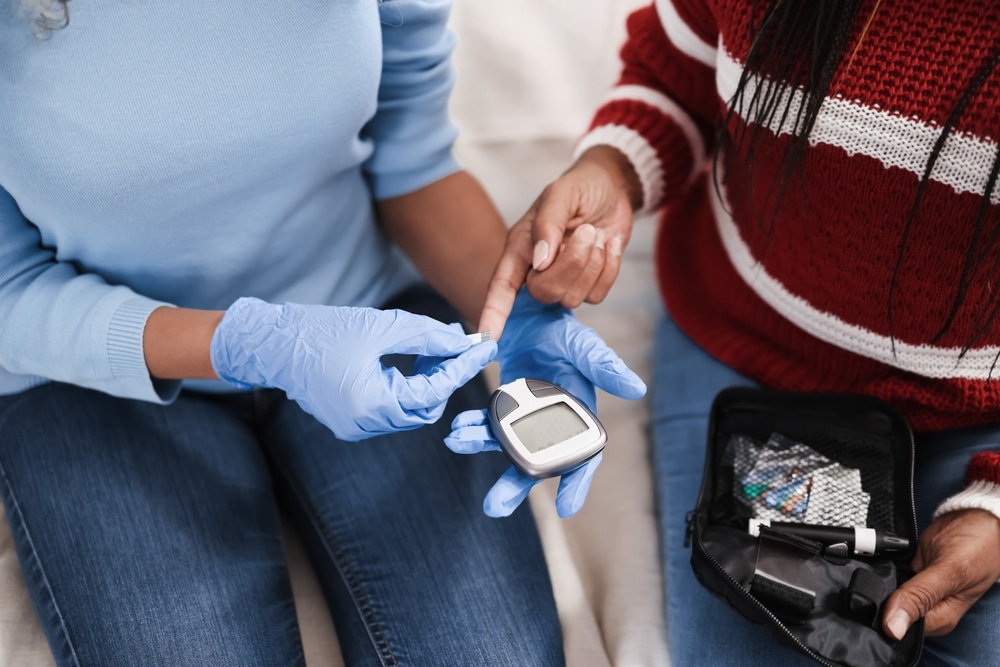
Important Statistics on Diabetes in America
MILLION
Total People with Diabetes (11.3% of the US population)
MILLION
People diagnosed with diabetes, including 28.5 million adults.
MILLION
People undiagnosed and living with diabetes
(23.0% of adults)
MILLION
People aged 18 years or older with prediabetes.
(38.0% of the adult US population)
MILLION
People aged 65 years or older (48.8%) with prediabetes.
Source: CDC
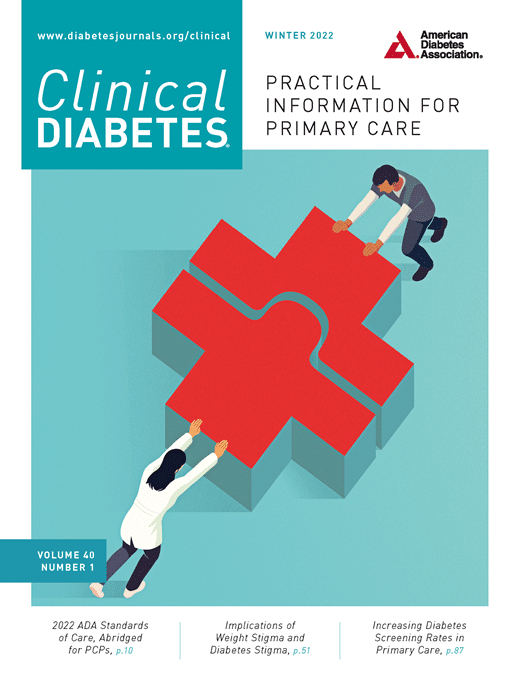
Featured Resource on Diabetes
Standards of Medical Care in Diabetes 2022
American Diabetes Association
The ADA’s Standards of Medical Care in Diabetes is updated and published annually in a supplement to the January issue of Diabetes Care. The Standards are developed by the ADA’s multidisciplinary Professional Practice Committee, which comprises expert diabetes health care professionals. The Standards include the most current evidence-based recommendations for diagnosing and treating adults and children with all forms of diabetes.
CPE Courses on Diabetes
Webinars on Diabetes
Featured Blog Posts on Diabetes

Managing Diabetes in Older Adults
What is the right strategy for managing diabetes in older adults? Do they require intensive…Read More
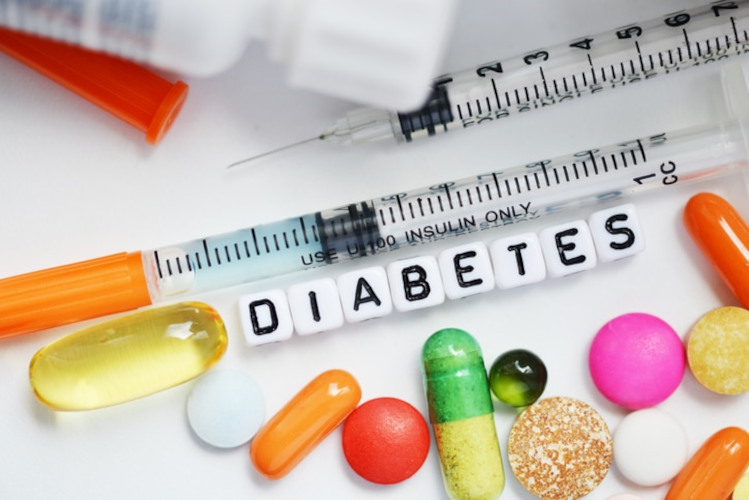
Understanding Medications for Type 2 Diabetes
Individualized treatment plans are a must for successful diabetes management. The plan of care will…Read More
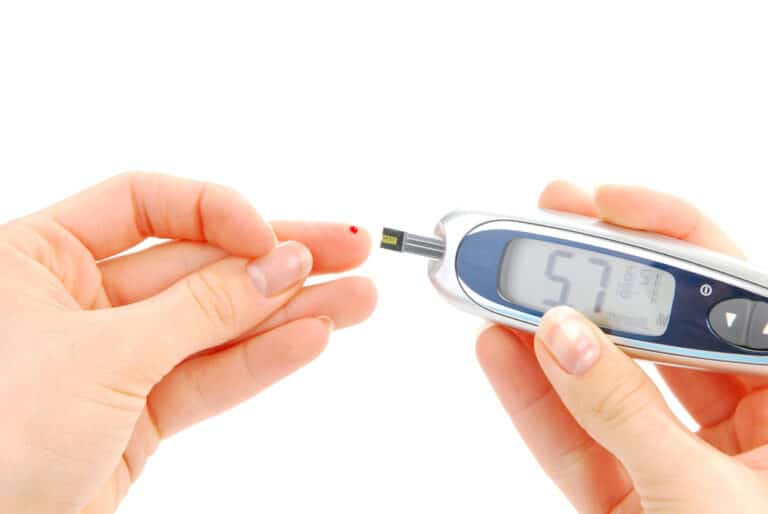
Is My Patient’s Blood Sugar Too Low?
When treating adults with diabetes, most health care professionals focus on normalizing blood glucose levels…Read More

Diabetes Best Practices: Standards of Medical Care in Diabetes
Keeping abreast of the latest guidelines for diabetes treatment can be daunting. Fortunately, the American…Read More
FAQs on Diabetes & Prediabetes
Get answers to nutrition professionals’ most frequently asked questions about diabetes and prediabetes below!
DIABETES
Can you elaborate on providing only a carbohydrate source for an evening snack instead of a carbohydrate and protein snack before bed?
The guidelines state that protein may enhance or increase the release of insulin from the pancreas in response to ingested carbohydrates (provided that the patient still makes their own insulin.) This means that protein included in the snack may actually decrease the effectiveness of carbohydrates in preventing hypoglycemia during the night. “Carbohydrate sources that are high in protein should not be used to treat or prevent hypoglycemia.”
Example: Milk has been eliminated from the list of treatment options for low blood sugar.
Facilitating Behavior Change and Well-Being to Improve Health Outcomes (p. S53) has a section on MNT that provides the information on protein. Reference cited here: https://pubmed.ncbi.nlm.nih.gov/18469290/.
Assessment of barriers to diabetes-care self-management is essential. What is a better terminology other than “non-compliant”?
In general, it would be preferable to state the actual barrier to self-care specifically rather than labeling the individual as non-compliant. Using the framework of our Nutrition Care Process would be appropriate.
Example: Excessive intake of carbohydrates at meals related to the client working multiple jobs with limited time for shopping/food preparation and client preference for higher carbohydrate convenience foods, as evidenced by elevated postprandial glucose levels and deterioration in A1C over past 3 months.
What are your thoughts about 50% calories from fat and 25% protein and 25% carbohydrates?
The guidelines state that people with diabetes should follow the same guidance as for the general population without diabetes (National Academy of Medicine states that 20–35% of calories from fat for all adults is acceptable.) Further, the guidelines state there is not an ideal percentage of fat and this can be individualized based on goals and preferences. Trans fat should be avoided. As saturated fat is decreased, it should be replaced with mono or polyunsaturated fats instead of refined carbohydrates.
Do you feel once type 2 diabetes is confirmed it is ever reversible with lifestyle changes/actions?
There is a lot of discussion about diabetes “remission” (instead of reversal.) This is because type 2 diabetes is a progressive condition and generally the glucose control deteriorates over time. The positive results from the Diabetes Prevention Program Outcomes Study (DPPOS) and the longer-term diabetes prevention studies do seem to indicate that early aggressive lifestyle changes may delay type 2 for many years. Current data suggests remission rates are closely linked to weight loss achieved and maintenance of weight loss over time.
What about COVID-19 and blood sugars?
There have been some anecdotal reports of new cases of type 1 diabetes in those with no previous personal history or family history of diabetes but no conclusive data at this time. As far as type 2 diabetes, the glucose levels will be elevated with any infection and steroids used to treat lung issues can increase glucose as well. Data is being compiled and we will have to wait for results to learn if COVID-19 infection is related to new cases of diabetes.
Are there recommended programs for virtual Diabetes Prevention Programs with Lifestyle Coaches?
In order to be reimbursed, all programs must be recognized by the CDC and use the program outlined in the requirements for recognition. You can view all recognized organizations on the CDC website.
Do you agree with the Paleo Diet and other similar diets?
Please see the evidenced-based recommendations included here for several popular eating patterns:
Nutrition Therapy for Adults with Diabetes or Prediabetes: A Consensus Report Diabetes Care 2019 May;42(5):731-754
Paleo Diet: Only a few small studies lasting less than 3 months. Mixed results on weight loss, A1c and lipids in those with type 2 diabetes.
What is a general rule of thumb for daily grams of carbohydrates for women and men with diabetes?
There is no ideal percentage of carbohydrates for those with diabetes or prediabetes.
In general, most people with diabetes eat about 45% of calories from carbohydrates. Guidelines recommend that RDNs meet clients where they are with consideration for life circumstances, preferences, willingness to change, financial barriers, current eating pattern and metabolic goals. Helping those with prediabetes to achieve and maintain weight loss is primary goal for any eating pattern they choose
PREDIABETES
Is it expected or assumed that those with prediabetes generally have insulin resistance and elevated insulin levels?
In general, this is probably the case.
Can you comment on the value of people with prediabetes checking their blood sugar levels after meals on an intermittent basis, to get a sense if their numbers are rising, and how high?
In my own practice, I ask clients to alternate checking two-hour postprandial readings. One or two days a week check post-breakfast and document what they ate, then one or two days a week post-lunch, etc. This can reveal a pattern or enlighten the client as to which food choices are driving postprandial glucose readings higher.
Have you heard of any research or development in the area of genetic testing for genes for prediabetes/diabetes?
Variants are shown in common genetic tests, 23andMe, Ancestry, Nutrigenomic.
The 23&andMe testing is optional (additional charge) and could help identify those who share common genes and risk factors associated with type 2 diabetes. Right now, the test results are based on genetic information and answers to lifestyle questions. The developers suggest clinical correlation and discussion with healthcare providers regarding weight, lipids and glucose levels for those identified at risk. The researchers are seeking to expand the database to include a wider range of ethnic backgrounds for more specific diverse genetic information.
Many of my patients ask about intermittent fasting. Could you please comment on its usefulness?
Please see the evidenced-based recommendations included here for several popular eating patterns:
Nutrition Therapy for Adults with Diabetes or Prediabetes: A Consensus Report
Diabetes Care 2019 May;42(5):731-754
From the Consensus Report:
In Prediabetes – 6 h eating window with no food after 3 pm v 12 h eating window showed improved insulin sensitivity, Beta cell response, BP, oxidative stress and appetite with 6 h window.
What is a general rule of thumb for daily grams of carbohydrates for individuals who are considered to have prediabetes?
There is no ideal percentage of carbohydrate for those with diabetes or prediabetes.
In general, most people with diabetes eat about 45% of calories from carbohydrates. Guidelines recommend that RDNs meet clients where they are with consideration for life circumstances, preferences, willingness to change, financial barriers, current eating pattern and metabolic goals. Helping those with prediabetes to achieve and maintain weight loss is the primary goal for any eating pattern they choose.
FAQ Sources
- February 4, 2021 Webinar 1 by Kathy Warwick, RD, CDCES
Disclaimer:
The responses to these FAQs are for general information purposes only and are not intended to address individualized requirements. The expert who provided the answers and Becky Dorner & Associates have endeavored to keep the information accurate, but do not guarantee its accuracy and accept no responsibility or liability for any loss or damage which may arise from using or relying on this information.
Free Resources on Diabetes and More

Blog
Check our blog regularly for new articles on diabetes and other nutrition care topics.

Email List
Subscribe to stay up-to-date on new products, sales, free resources and more!

Free CPEs
Access free CPE courses and webinars to take your career to the next leve
The Essentials for Every Nutrition Professional
Browse Resources by Topic
Did you know you can now browse courses, webinars and other resources on our website by topic (in addition to Diabetes)? We will be adding more topics soon!

Cardiovascular Health

Dysphagia

Malnutrition

Older Adult Nutrition
Request a Resource on Diabetes
Interested in learning more about nutrition care for diabetes but don’t see the specific topic here? We’d love to get ideas for new resource creation! Please submit the form below to tell us what we’re missing.
"*" indicates required fields

